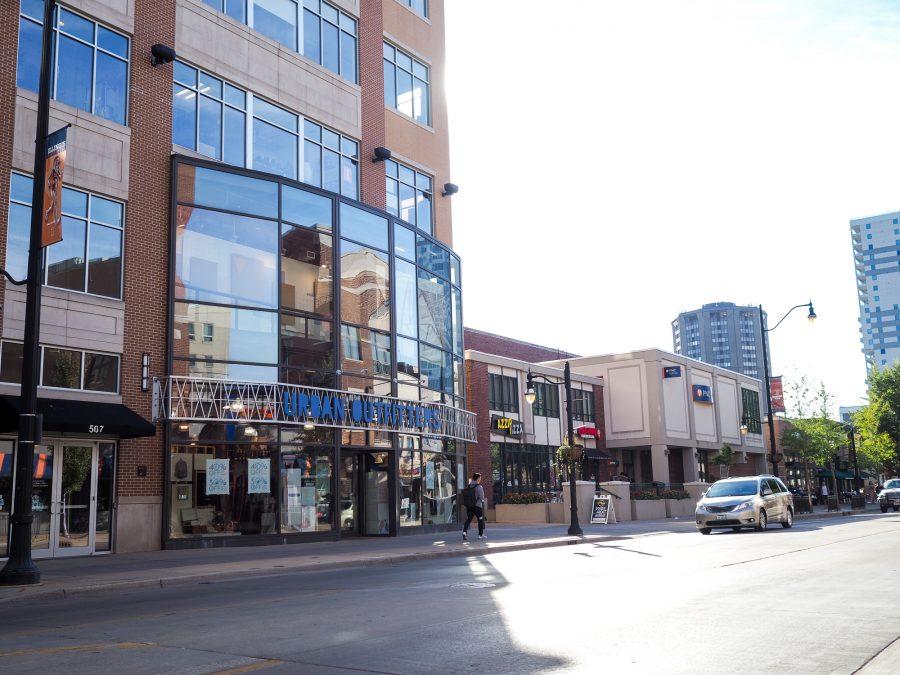How far will consumers go for brand loyalty?
Urban Outfitters stands on Green St. as a frequented retail store on campus. October 10, 2016.
October 11, 2016
 In middle school, it was Juicy Couture purses and Uggs. Now, it’s Birkenstocks and anything from Urban Outfitters.
In middle school, it was Juicy Couture purses and Uggs. Now, it’s Birkenstocks and anything from Urban Outfitters.
In society today, there’s always a new must-have product on the market. And if not a product, then a new trend or brand/company that is just so in style.
For as long as I can remember, people have looked to others for style inspirations to keep up with the latest societal trend.
As humans, we observe others to adjust our behavior; we always mirror others. So it’s no surprise that we get our fashion trends from other people as well. And once we find a brand we love, we are surprisingly loyal to that given brand. We will pay obscene amounts of money for a name brand or a familiar brand than for a competitor.
A t-shirt at Urban Outfitters can run you about $30, even if it’s a plain one. A similar or even the same t-shirt somewhere else could be $10-$15. But as consumers and humans we will spend more money on the name brand.
Get The Daily Illini in your inbox!
It could be that the name brand is higher quality. But it’s not always the quality we buy, rather the name of the product and the compliments that come with it.
Just last week a popular streetwear brand, Supreme, released a new item in their fall collection, and loyal consumers of the brand went insane.
The brand is an exclusive and rather pricey one. It originates from New York and started up in 1994. Supreme first started as a skateboarding shop/clothing brand. Since then, they have grown into a more streetwear and high fashion brand, selling t-shirts, hoodies, jeans and other basic clothing essentials.
But the new item released last week was like no other product the company had released before. The company was selling a brick. Yes, a single brick for around $40. It was a simple red brick with Supreme’s name on it. At first glance it may look like an unnecessary and weird purchase, which it is.
I mean, what are you even gonna do with a brick?
But despite the odds, customers were lined up at stores and the brick sold out immediately online. It was a must-have item simply because of its name brand and aesthetic.
Customers ate it up, and many were disappointed when they couldn’t score a brick. Resellers even tried to sell it on Ebay for up to $1,000. This seems crazy — why would people buy a brick for that much money just for the brand?
Well, this is what society and the open market has come to. People are not only loyal to brands, but they will go the extra mile and pay the extra amount to buy a name.
To create a certain lifestyle, or to be happy, people feel the need to purchase material goods. And not just any goods, but the cream of the crop that will give them the appearance they desire.
It’s not just about quality or efficiency with products these days. It’s about the name or logo they hold. It’s the first question that your friends will ask you and the first question that they ask on the red carpet: Who are you wearing?
Consumers will go to extreme lengths to not only please themselves, but to appeal to others as well.
We will pay the extra pocket change just to get the name and the lifestyle. This is the way society works, and unless the world can become less materialistic as a whole it will continue to be this way.
Andrea is a freshman in Media.







